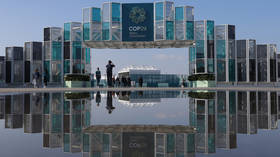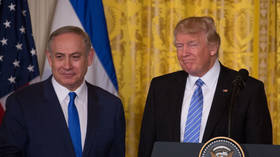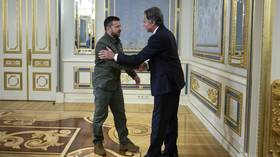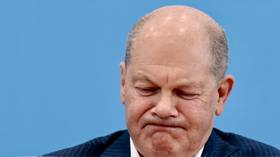How fossil fuel-rich Middle Eastern nations fight climate change
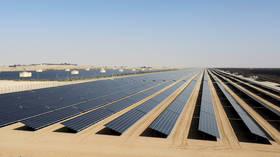
In November, the capital of Azerbaijan, Baku, hosted COP29, a landmark event that served as a vital platform for shaping global climate policy and advancing the energy transition. The conference drew heads of state and government from over 80 countries, alongside experts and business leaders, to address pressing issues such as scaling up climate finance, expanding carbon markets, and responding to emerging challenges.
The opening ceremony was presided over by Sultan Ahmed Al Jaber, the president of COP28, who formally handed over the chairmanship of the climate summit from the United Arab Emirates to Azerbaijan. In his remarks, he reviewed the strides made in advancing the climate agenda during COP28 and underscored the significance of the newly established collaboration between the presidencies of COP28, COP29, and COP30. This unprecedented tripartite effort marks a transformative approach to tackling global climate challenges.
While COP29 highlighted notable progress, it also revealed the enduring complexities of aligning the ambitions and priorities of developed and developing nations. The role of Middle Eastern countries was a focal point of these discussions, as the region grapples with the dual imperatives of sustaining its traditional hydrocarbon economy and embracing the global push for decarbonization.
Against the backdrop of an evolving global climate agenda and rapid shifts in energy markets, the quest for balanced, effective solutions to the energy transition remains paramount. These solutions must account for national circumstances, economic imperatives, and technological potential. The ultimate goal is to design adaptive and resilient energy systems that can simultaneously secure energy supplies, drive economic growth, and achieve substantial reductions in greenhouse gas emissions.
Many Middle Eastern countries have taken proactive steps to foster international collaboration in energy innovation, prioritizing open and mutually beneficial partnerships. By leveraging their unique position in the global energy landscape, they aim to play a leading role in shaping the future of sustainable energy.
The Middle East is one of the world’s most vital energy regions, holding over 30% of global oil reserves and 40% of natural gas reserves. This makes the region not only a leading exporter of fossil fuels but also a crucial player in the global effort to meet the goals of the Paris Agreement. At the same time, the Middle East is highly vulnerable to climate change. Rising temperatures, desertification, water shortages, and ecosystem degradation present significant risks that demand a coordinated response. During COP29, Middle Eastern countries reiterated their commitment to climate targets while calling for an approach that reflects their economic and social realities.
Many countries in the region, especially BRICS members, advocate for the principle of a ‘just energy transition’. This concept underscores the right of nations to independently chart their path toward decarbonization, define their energy priorities, and develop their energy systems based on national goals.
Saudi Arabia, as one of the world’s largest oil producers, remains a key player in global climate discussions. At COP29, the Kingdom reaffirmed its commitment to achieving carbon neutrality by 2060, showcasing initiatives under the Saudi Green Initiative. The Saudi delegation outlined expanded plans for investments in renewable energy, focusing on solar and hydrogen projects. A central topic of discussion was the Circular Carbon Economy (CCE) initiative, which aims to reduce emissions by capturing and repurposing CO₂. Saudi Arabia emphasized that carbon capture technologies must be formally recognized as an essential part of global climate agreements.
A major highlight of COP29 for Saudi Arabia was the launch of its first carbon trading platform, operated by the Regional Voluntary Carbon Market Company (RVCMC). This initiative is part of a broader national strategy to expand voluntary carbon markets and is supported by the Public Investment Fund (PIF), which holds an 80% stake, alongside the Saudi Tadawul Group with 20%. The PIF also oversees major investments in renewable energy, including solar projects, as part of the Vision 2030 plan to diversify the Saudi economy.
During COP29, Saudi Arabia also announced strategic partnerships with Azerbaijan, Kazakhstan, and Uzbekistan. These partnerships aim to modernize energy infrastructure and integrate renewable energy sources into the national grids of participating countries. Meanwhile, there were reports that Saudi negotiators sought to steer the final COP29 declaration away from language that explicitly called for the “phasing out of fossil fuels.”
Saudi-based ACWA Power also played a prominent role at COP29 as the official Energy and Water Partner. As the world’s largest private desalination company, a trailblazer in green hydrogen, and a leader in renewable energy development, ACWA Power highlighted Saudi Arabia’s ambitions to position itself at the forefront of the global energy transition.
Qatar, as one of the leading global exporters of liquefied natural gas (LNG), leveraged COP29 to present its initiatives for transitioning from traditional natural gas to hydrogen. The Qatari delegation outlined an ambitious plan to develop infrastructure for the production and export of both ‘blue’ and ‘green’ hydrogen, ensuring the country’s continued leadership in the energy market while reducing its carbon footprint. Qatar also emphasized the importance of enhancing funding for climate adaptation projects, advocating for increased international support to assist developing nations. This initiative reflects Doha’s growing role in global climate diplomacy.
The country is actively expanding its investments in renewable energy as part of its National Renewable Energy Strategy, which targets a 30% share of clean energy in the national energy mix by 2030. Significant progress has been made in advancing solar energy projects and improving energy efficiency. In the realm of sustainable transportation, Qatar has achieved notable milestones, including the launch of the Doha Metro, the Lusail Tram, and the use of electric buses, which now account for over 70% of the country’s public transportation fleet. These efforts were further highlighted during the first-ever carbon-neutral FIFA World Cup in 2022, a global showcase of Qatar’s commitment to sustainable development.
The United Arab Emirates reinforced its position as a global leader in climate technology at COP29, presenting transformative projects such as the development of some of the world’s largest solar power plants and groundbreaking advancements in hydrogen energy. The UAE articulated its aspiration to become an international hub for the production and export of green hydrogen, emphasizing the importance of hydrogen as a cornerstone of the energy transition. Additionally, the UAE focused on sustainable urban development, unveiling updated plans for Masdar City, a model for carbon-neutral urban living and a centerpiece of the country’s sustainability vision.
The UAE stressed the importance of international collaboration in advancing climate technology and proposed the establishment of a global fund to support innovative climate solutions. A key player in these efforts is Masdar, a globally recognized renewable energy company and a pioneer in clean energy technologies. Masdar continues to accelerate the global energy transition through its investments in solar, wind, geothermal, energy storage, and green hydrogen, helping to achieve global net-zero ambitions.
Iran, on the other hand, emphasized the importance of aligning climate commitments with national interests. Tehran announced plans to increase its capacity for solar and wind energy production but highlighted the challenges posed by international sanctions, which restrict access to advanced technologies and foreign investments. Iran called for the creation of international mechanisms to ensure the equitable distribution of climate responsibilities between developed and developing nations.
Countries such as Iraq and Yemen, both deeply affected by political and economic instability, stood out at COP29 due to their heightened vulnerability to climate impacts. These nations presented ambitious plans focused on ecosystem restoration and enhanced water resource management, while emphasizing the critical need for international support. A key priority was addressing desertification, which threatens food security across the region and demands urgent action.
COP29 marked a significant milestone in advancing the global climate agenda and fostering new opportunities for international collaboration. Middle Eastern countries played a central role, actively contributing to global initiatives. Among the most important outcomes was the adoption of a new collective climate goal: Tripling climate finance for developing nations by 2035, raising annual commitments from $100 billion to $300 billion. This decision underscores the recognition that large-scale financial investments are essential to tackle the pressing challenges of climate change, particularly in countries most vulnerable to its effects.
Another breakthrough was the long-awaited agreement on the establishment of carbon markets under the Paris Agreement, a move expected to save nations up to $250 billion annually in the implementation of climate plans. Additionally, the formal creation of a dedicated fund to assist countries most affected by climate change represents a critical step toward ensuring equitable resource allocation.
Despite ongoing geopolitical tensions, COP29 demonstrated substantial progress in advancing international climate priorities. The conference’s exceptional organization in Azerbaijan earned widespread acclaim, and the initiatives launched provided significant momentum for adopting sustainable practices. However, the ultimate success of these decisions will hinge on their practical implementation and the sustained commitment of participating nations.
As the host country, Azerbaijan reaffirmed its commitment to addressing global environmental challenges and solidified its position as a proactive leader in sustainability. This role opens up new opportunities for the country to strengthen international partnerships and attract investment in its green economy. The outcomes of COP29 serve as a powerful reminder of the importance of solidarity and collective action in securing a sustainable and resilient future for the planet.
The Baku Declaration adopted at COP29 sets out strategic priorities for international cooperation in addressing climate change. A key focus of the declaration is the management of water resources, which is becoming an increasingly pressing issue as climate change exacerbates water scarcity worldwide. It highlights the need for immediate and coordinated action, encouraging the sharing of knowledge and technologies to promote efficient water use and prevent future crises.
Another significant priority is the development of climate-smart cities. The declaration underscores that urbanization must go hand in hand with the integration of green technologies, energy-efficient solutions, and sustainable urban planning. Cities must be designed to adapt to evolving climate conditions, ensuring they remain safe, resilient, and livable spaces.
The declaration also places a strong emphasis on transparency in climate data. It calls for enhanced collaboration in data sharing, open access to climate research, and the adoption of improved standards for monitoring climate change. By proposing the creation of a global infrastructure for collecting and analyzing climate information, the Baku Declaration seeks to equip countries with the tools needed for better coordination and informed decision-making.
More than just a statement of intent, the Baku Declaration provides a strategic framework for future international climate policy. It calls for an integrated approach that unites countries and regions to achieve the goals of the Paris Agreement and advance the broader sustainable development agenda.
COP29 provided a crucial platform for Middle Eastern countries to showcase their ambitions, propose innovative solutions, and draw attention to their unique challenges. It is essential for the global community to support these efforts, recognizing the region not only as a major exporter of oil but also as a critical partner in the global fight against climate change.
Middle Eastern nations demonstrated a clear commitment to transforming their energy policies toward sustainability. However, their participation also highlighted the complex challenges posed by the region’s economic, social, and climatic conditions. Achieving global climate goals will require not only sustained international support for the region’s initiatives but also a recognition that the transition to a low-carbon economy in the Middle East necessitates a tailored approach and robust international collaboration.
